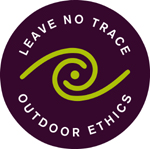-
Miners Ridge and Ossagon backcountry camps closed indefinitely.
Backpacker sites avail. during summer only at Gold Bluffs Beach Campground (8 sites avail.; free permit req'd; $5 fee paid on site) and year-round at Elk Prairie Campground (hiker/biker sites avail., first-come, first-served; $5 fee paid on site). More »
-
Campgrounds open and space available, but reservations no longer accepted.
As of 9.3.2012, reservations no longer accepted (via reserveamerica.com; 1-800-444-7275) for Jed Smith, Mill Creek, and Elk Prairie campgrounds. This does NOT mean that sites are unavail. All sites avail. first-come, first-served basis until Spring 2013. More »
Backcountry
|
Seeing a park by automobile isn't for everybody. For those who crave quiet hours on the trail, a starlit sky at night, and sleeping to the sound of crashing waves, more than 200 miles of trails provide access to Redwood National & State Parks’ extraordinary backcountry. Whether on foot, bicycle, or horseback, you’ll traverse a wide variety of natural habitats, including old-growth redwood forests, mixed evergreen forests, coastal scrub, prairies, streams, marshes, and unspoiled beaches. 
www.lnt.org Regulations and Guidelines 1. Plan Ahead and Prepare
2. Travel and Camp on Durable Surfaces
3. Dispose of Waste Properly
4. Leave What You Find
5. Minimize Campfire Impacts
6. Respect Wildlife 7. Be Considerate of Other Visitors |
Did You Know?

Common in the redwood forest, ravens often scavenge food scraps found in campgrounds. Once they find an easy food source, they constantly fly over that area in search of food. Unfortunately, they may come across a marbled murrelet nest and eat the egg or chick! Please store all food items properly.
